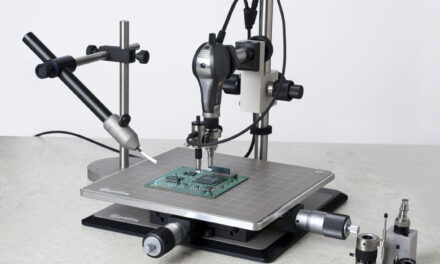 Celebrating 20 years of competing in the Formula Student competition, the University of Birmingham’s official team, UBRacing is preparing for this year’s race season. The competition, which is organised in the UK by IMechE, the Institution of Mechanical Engineers, is all about building future engineering talent by designing and producing a single-seater racing car. As part of its YES (Young Engineers Support) programme, igus has backed the UBRacing team for several years with free engineering advice and products.
Celebrating 20 years of competing in the Formula Student competition, the University of Birmingham’s official team, UBRacing is preparing for this year’s race season. The competition, which is organised in the UK by IMechE, the Institution of Mechanical Engineers, is all about building future engineering talent by designing and producing a single-seater racing car. As part of its YES (Young Engineers Support) programme, igus has backed the UBRacing team for several years with free engineering advice and products.
“Most of the members are Mechanical Engineering undergraduates, however, the team is not restricted only to engineering students,” says Charles Hodgson, Team Principal of UBRacing. “This is because the competition is based around running the team as a successful business, as well as producing a car that performs well under static and dynamic tests.” Hodgson estimates that it costs £30,000 a year to run the project – all of which is funded through sponsorship and support from businesses.
This year, igus engineering plastic bearing products are being used in the car’s steering rack, pedal box and for the anti-roll bar bushing. These tribologically-
In the steering rack of this year’s car, a drylin R press fit bearing is used at each end of the steering shaft. A drylin R standard liner, which features a long open design, is used in the centre to align the shaft as well as acting as a bearing. “Not only is this material extremely wear-resistant,” explains Hodgson, “it effectively dampens radial movement of the steering rack and thereby reduces vibration in the steering wheel.”
In the pedal box, the engineering students developed a new design that enables the position of the pedals to move forward and backwards to suit the driver. For this, they selected two drylin T low-profile linear guides, which are easily adjustable. The rails and carriages are made of hard anodised aluminium, making the system resilient to high shock loads, as well as being lightweight and corrosion resistant.
“As we use different drivers for different events, this is very useful, and also is a feature that Design Event Judges liked, as the static events view the car as a business venture,” explains Hodgson. “This means that by having an adjustable pedal box, we can argue that we have a wider potential customer base and a more ergonomic vehicle.”
The engineering team are also using iglidur P210 and iglidur J350 bar stock for the car’s anti-roll bar bushings. These are necessary to allow the anti-roll bars to move freely, and are turned by the students to the correct size and shape for the car.
“We wish UBRacing good luck for the upcoming season,” says Matthew Aldridge, managing director of igus. “With the backing of many engineering companies across the UK, I am convinced the team will impress the jury with its ingenuity, thus bolstering the engineering faculty at the University of Birmingham.”
igus resources:
LiveChat with our technical team at igus.co.uk
Follow us at twitter.com/igusUK
Watch our videos at igus.co.uk/YouTube
Connect to us at igus.co.uk/Facebook
Read our blog at blog.igus.co.uk

